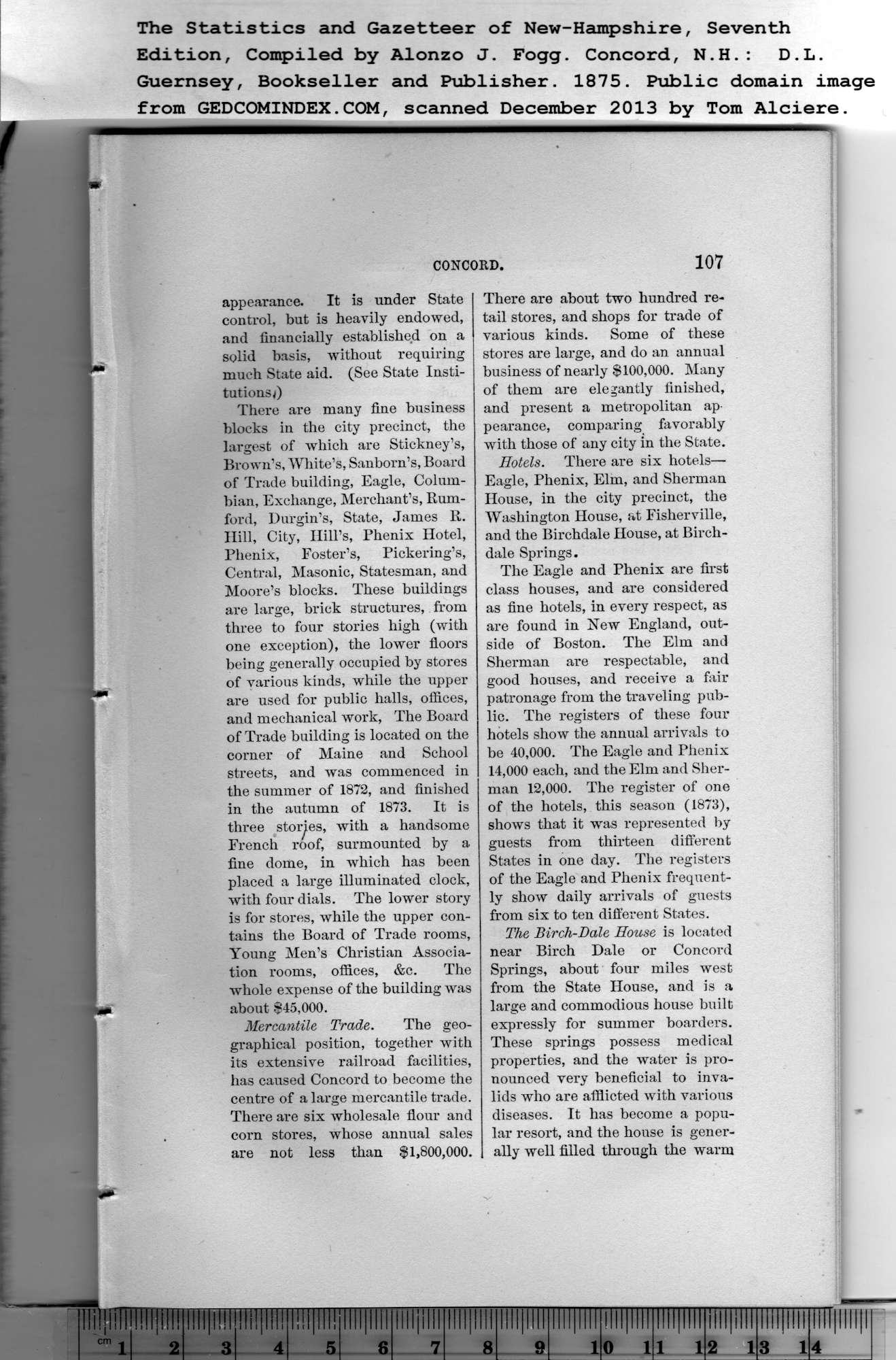|
appearance. It is under State
control, but is heavily endowed,
and financially established on a
solid basis, without requiring
much State aid. (See State Insti-
tutions^)
There are many fine business
blocks in the city precinct, the
largest of which are Stickney’s,
Brown’s, White’s, Sanborn’s, Board
of Trade building, Eagle, Colum-
bian, Exchange, Merchant’s, Rum-
ford, Durgin’s, State, James It.
Hill, City, Hill’s, Phenix Hotel,
Plienix, Foster’s, Pickering’s,
Central, Masonic, Statesman, and
Moore’s blocks. These buildings
are large, brick structures, from
three to four stories high (with
one exception), the lower floors
being generally occupied by stores
of various kinds, while the upper
are used for public halls, offices,
and mechanical work, The Board
of Trade building is located on the
comer of Maine and School
streets, and was commenced in
the summer of 1872, and finished
in the autumn of 1873. It is
three stoiyes, with a handsome
French roof, surmounted by a
fine dome, in which has been
placed a large illuminated clock,
with four dials. The lower story
is for stores, while the upper con-
tains the Board of Trade rooms,
Young Men’s Christian Associa-
tion rooms, offices, &c. The
whole expense of the building was
about §45,000.
Mercantile Trade. The geo-
graphical position, together with
its extensive railroad facilities,
has caused Concord to become the
centre of a large mercantile trade.
There are six wholesale flour and
corn stores, whose annual sales
are not less than $1,800,000. |
There are about two hundred re-
tail stores, and shops for trade of
various kinds. Some of these
stores are large, and do an annual
business of nearly $100,000. Many
of them are elegantly finished,
and present a metropolitan ap-
pearance, comparing favorably
with those of any city in the State.
Hotels. There are six hotels—
Eagle, Phenix, Elm, and Sherman
House, in the city precinct, the
Washington House, at Fisherville,
and the Birchdale House, at Birch-
dale Springs.
The Eagle and Phenix are first
class houses, and are considered
as fine hotels, in every respect, as
are found in New England, out-
side of Boston. The Elm and
Sherman are respectable, and
good houses, and receive a fair
patronage from the traveling pub-
lic. The registers of these four
hotels show the annual arrivals to
be 40,000. The Eagle and Phenix
14,000 each, and the Elm and Sher-
man 12,000. The register of one
of the hotels, this season (1873),
shows that it was represented by
guests from thirteen different
States in one day. The registers
of the Eagle and Phenix frequent-
ly show daily arrivals of guests
from six to ten different States.
The Birch-Hale House is located
near Birch Dale or Concord
Springs, about four miles west
from the State House, and is a
large and commodious house built
expressly for summer boarders.
These springs possess medical
properties, and the water is pro-
nounced very beneficial to inva-
lids who are afflicted with various
diseases. It has become a popu-
lar resort, and the house is gener-
ally well filled through the warm |
